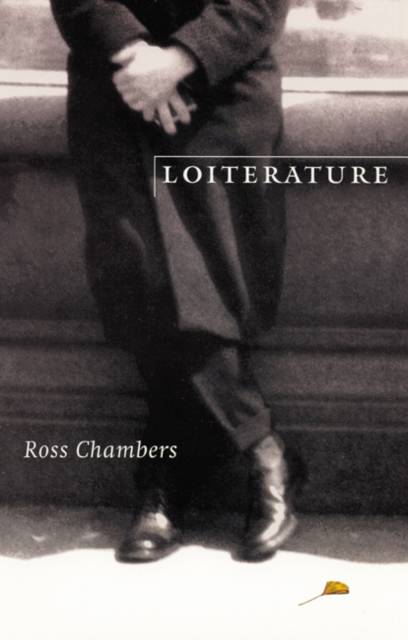
- Afhalen na 1 uur in een winkel met voorraad
- Gratis thuislevering in België vanaf € 30
- Ruim aanbod met 7 miljoen producten
- Afhalen na 1 uur in een winkel met voorraad
- Gratis thuislevering in België vanaf € 30
- Ruim aanbod met 7 miljoen producten
Zoeken
Omschrijving
The fabric of the western literary tradition is not always predictable. In one wayward strand, waywardness itself is at work, delay becomes almost predictable, triviality is auspicious, and failure is cheerfully admired. This is loiterature. Loiterature is the first book to identify this strand, to follow its path through major works and genres, and to evaluate its literary significance. By offering subtle resistance to the laws of "good social order," loiterly literature blurs the distinctions between innocent pleasure and harmless relaxation on the one hand, and not-so-innocent intent on the other. The result is covert social criticism that casts doubt on the values good citizens hold dear-values like discipline, organization, productivity, and, above all, work. It levels this criticism, however, under the guise of innocent wit or harmless entertainment. Loiterature distracts attention the way a street conjurer diverts us with his sleight of hand. If the pleasurable has critical potential, may not one of the functions of the critical be to produce pleasure? The ability to digress, Ross Chambers suggests, is at the heart of both, and loiterature's digressive waywardness offers something to ponder for critics of culture as well as lovers of literature. Ross Chambers is Marvin Felheim Distinguished University Professor of French and Comparative Literature at the University of Michigan. His books include The Writing of Melancholy and Room for Maneuver.
Specificaties
Betrokkenen
- Auteur(s):
- Uitgeverij:
Inhoud
- Aantal bladzijden:
- 312
- Taal:
- Engels
- Reeks:
- Reeksnummer:
- nr. 14
Eigenschappen
- Productcode (EAN):
- 9780803263925
- Verschijningsdatum:
- 1/04/1999
- Uitvoering:
- Paperback
- Formaat:
- Trade paperback (VS)
- Afmetingen:
- 146 mm x 229 mm
- Gewicht:
- 417 g

Alleen bij Standaard Boekhandel
+ 106 punten op je klantenkaart van Standaard Boekhandel
Beoordelingen
We publiceren alleen reviews die voldoen aan de voorwaarden voor reviews. Bekijk onze voorwaarden voor reviews.








